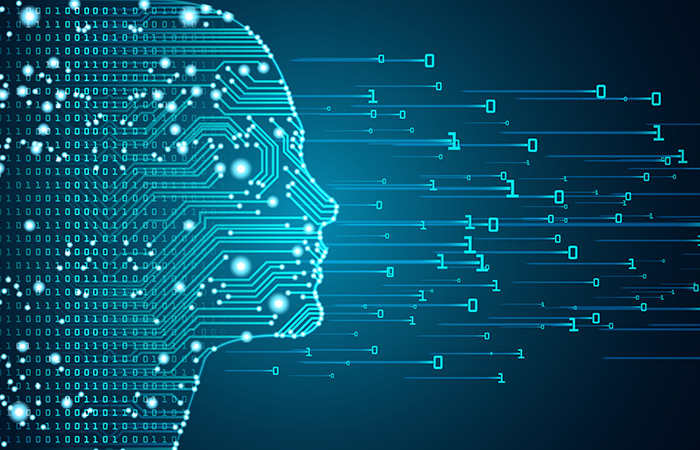In the dynamic realm of technology, organizations are at a critical juncture fueled by the emergence of generative artificial intelligence, which has necessitated a strategic reassessment of workforce dynamics. Research indicates that 43% of HR executives anticipate a skills gap in their companies because of the rise of AI.
Amid this era of transformative change, prioritizing upskilling is not an option but an imperative for organizations striving to maintain competitiveness.
As organizations embark on this journey, it’s important to recognize the emergence of new job roles as well as the redefinition of existing job roles. The evolving landscape now calls for proficiency in data science, machine learning, AI engineering and ethical AI governance. Specialized skill sets aligned with the dynamic nature of evolving technology are crucial for navigating this uncharted terrain.
The ongoing transformation isn’t just about the evolution of roles; it’s about individuals growing more multi-dimensional. Like concerns in the past about typists losing their jobs with the advent of word processors, there’s now a widespread concern and curiosity about integrating AI into daily contexts. Embracing gen AI requires an understanding that the tech will be fundamental to ensuring the continued relevance of roles in the face of rapidly evolving technology.
Continuous learning: The cornerstone of adaptability
The commitment to staying abreast of the rapid advancements in AI technology is not merely advisable but crucial for success. Organizations should begin with cultivating an environment of continuous learning and commit to empowering individuals to develop a growth mindset, ensuring they remain flexible and adept in the face of new technologies. This serves as a model for organizations seeking to seamlessly adapt to new technologies and the evolving demands of the digital era.
See also: AI’s massive energy drain and its HR and ESG implications
The commitment to continuous learning should start at the top. Leadership should be known not just for talking about gen AI but for incorporating it into their roles. This leadership accountability extends to the acknowledgment that all roles, including leadership, are subject to disruption.
Implementing gen AI training
Organizations can facilitate gen AI training for their workforces through comprehensive initiatives, including:
- Strategic training programs: Develop thoughtfully designed programs emphasizing impactful behaviors. For instance, Publicis Sapient’s Gen AI Learning Hub offers a scalable model for flexible learning tailored to diverse workforces. Curated learning paths on gen AI, accessible to all, encourage exploration of AI’s value beyond routine tasks, featuring structured modules or experiential learning.
- Focused exploration through events: Engage employees in a Gen AI Spotlight Series, delving into various aspects of generative AI through events to provide in-depth knowledge and insights. These events are instrumental in keeping the workforce informed, motivated and attuned to the dynamic landscape of gen AI.
- Prompt engineering training: Shape a future where prompt language is integral to coding. Cultivate a culture of experimentation, encouraging employees to explore, innovate and learn from failures. Publicis Sapient, for instance, mandates prompt engineering learning for all employees, enhancing adaptability to evolving technologies.
- Learning ecosystem: Utilize technology-based learning platforms for upskilling. Custom AI platforms offer a blueprint to empower the workforce. Curated personalized learning experiences allow employees to learn at their own pace, fostering continuous learning, growth and adaptability.
Creating space for a culture of gen AI experimentation
While training is vital, it becomes truly impactful when coupled with an environment that encourages curiosity, continuous learning and learning from setbacks. Creating a secure space for experimentation, where lessons are drawn from failures, is key. Leaders play a pivotal role in cultivating an atmosphere that supports AI exploration, granting individuals the freedom to innovate without the fear of mistakes.
The success of companies in the age of gen AI relies on their ability to embrace new technologies and adopt effective training approaches, not only for gen AI but for any emerging technology. Taking a proactive stance on training is crucial as organizations embark on the gen AI journey. Crafting a comprehensive blueprint that prioritizes strategic training, nurtures a culture of continuous learning and adapts to the evolving landscape of generative AI is key to future-proofing the workforce.
This approach contributes not only to safeguarding against future challenges but also to the broader narrative of innovation and progress in the field of artificial intelligence.
Learn how global organizations are incorporating gen AI into their workforces at HR Tech Europe, May 2-3. Click here to register.
Credit: Source link







![40 Zoom Backgrounds For Memorable Meetings [+ Holidays, Parties & More] 40 Zoom Backgrounds For Memorable Meetings [+ Holidays, Parties & More]](https://www.hubspot.com/hubfs/holiday-zoom-backgrounds-1-20241216-1885425.webp)



